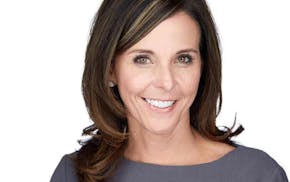Opponents of payday lending can take heart in the story of one woman who has retired her debt and sworn off Payday America with the help of a nonprofit financier.
Christina Thomas, 32, a single mother of three, was making $27,000 a year working for an armored car company when she took her first short-term loan of about $400 in 2011, to cover an unanticipated expense.
Her paycheck usually didn't stretch far enough.
Over the course of five years, Thomas would pay $30 to $40 every two weeks for another advance of $200 to $400, paying effective interest rates that would amount to 250 percent or more over a year.
"I was almost always short of the money to pay all the bills," Thomas said. "I tried to work extra hours, and sometimes I would borrow [as little as $200], but I could not get ahead. I felt like I was in a hole."
A year ago, Thomas paid off her payday tab with a no-interest loan from nonprofit Exodus Lending, a two-year-old refinance operation started by a retired small-business man and others in the congregation at a Minneapolis Lutheran church.
"It really took the stress off of me," said Thomas, who has nearly repaid the Exodus loan and now works a higher-paying job driving a school van.
Exodus, funded largely by donations and grants, has refinanced more than 200 working-poor borrowers since inception in 2015. Moreover, Sunrise Banks has a fast-growing program that provides emergency loans through participating employers to employees that generally limit emergency loans to $3,000 or less, no more than 8 percent of salary, and at 24 percent interest.
But these relatively small efforts haven't dented the payday industry. It generated 339,418 loans worth a principal amount of $134 million last year, according to the Minnesota Department of Commerce.
Former Commerce Commissioner Mike Rothman, a DFLer who resigned this month to run for attorney general in 2018, has unsuccessfully pushed the Minnesota Legislature for several years to adopt changes to the payday industry to protect against consumer "debt traps" with unlimited compounding loans that can result in fees and interest exceeding principal balances.
A Commerce-drafted bill is expected to be introduced early in the 2018 session that limits lenders to no more than four loans a year and a rollback of charges.
Rothman contends that Payday America, the state's largest payday lender, and several other players have exploited a Depression-era statue that loosened lending rates to get credit flowing in an era of bank contractions and little credit. They don't cap effective rates on small-dollar amounts made by such "industrial loan and thrift companies" as they are on banks and credit unions.
Mike Erlandson, a former Minnesota DFL Party chair who represents Payday America and its owner, Brad Rixmann, said the company is willing to talk about compromises. However, he said there's little to reform since the industry provides a valued service to workers who come up short before payday.
Rixmann has said similar bills in the past would put him out of business and end a vital service to customers.
Erlandson said the typical borrower is not a working-poor person who is desperate and caught up in a debt trap. Rather it's a high-school graduate making $25,000 to $50,000, with steady incomes and checking accounts, who have made informed decisions to borrow to avoid "racking up credit card debt" or risk a late fee on a payment, a banking overdraft fee, a utility reconnect fee or other charge that can be more expensive than fees on a payday advance.
Rixmann, who also owns Pawn America, and his wife had donated more than $500,000 to state candidates, including DFLers, over the last decade, according to a 2015 Star Tribune article.
The then-DFL led House passed Commerce's reform bill in 2014, but it died in the Senate, amid accusations that the Republicans were protecting a significant donor.
"Brad has said, 'Put me out of business by raising wages,' " Erlandson said. " 'But don't take away a source of funds that will drive [customers] to loan sharks [and internet lenders].'
"The vast majority only use payday lenders a couple times a year and they are not caught in a cycle of debt. They need the money. And Brad has created a place where they are treated right."
The hope here is that the parties can sit down and find some common ground that will address the concerns at Commerce, along with those of debt counselors at Lutheran Social Service and elsewhere who deal with hundreds of customers who say they are trapped.
The banks have largely abandoned the small-loan market, beyond credit cards. And the alternative products, such as the employer-based TrueConnect small-loan program offered through Sunrise Banks, haven't got enough traction to dent the ranks of payday lenders. Part of the problem is that to get a payday loan, you need a job and checking account. Nonprofit financial counselors say the working poor can be very good budgeters, but it's tough when a car break downs or a child has an out-of-pocket medical expense that can crimp the monthly budget.
Some states, and U.S. military bases, have simply banned payday lenders.
The Consumer Financial Protection Bureau last month proposed changes at the federal level similar to those proposed by the Minnesota Commerce Department. However, the CFPB's executive director has resigned amid little support from the Trump administration. And it's unlikely that the Republican-led Congress would permit the agency to implement new rules.
Neal St. Anthony has been a Star Tribune business columnist and reporter since 1984. He can be contacted at nstanthony@startribune.com.

St. Anthony: 'Patient' investing paying off for St. Paul's Hill Capital

Jennifer Smith, leader of Burnsville's Innovative Office Solutions, has died

St. Anthony: Medical professions in Minnesota need more people of color in their ranks



